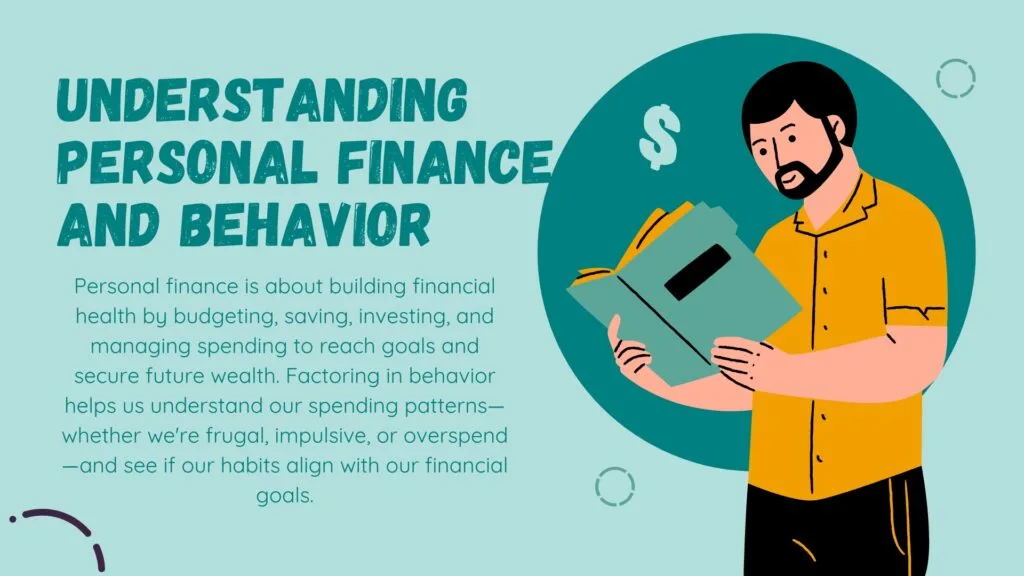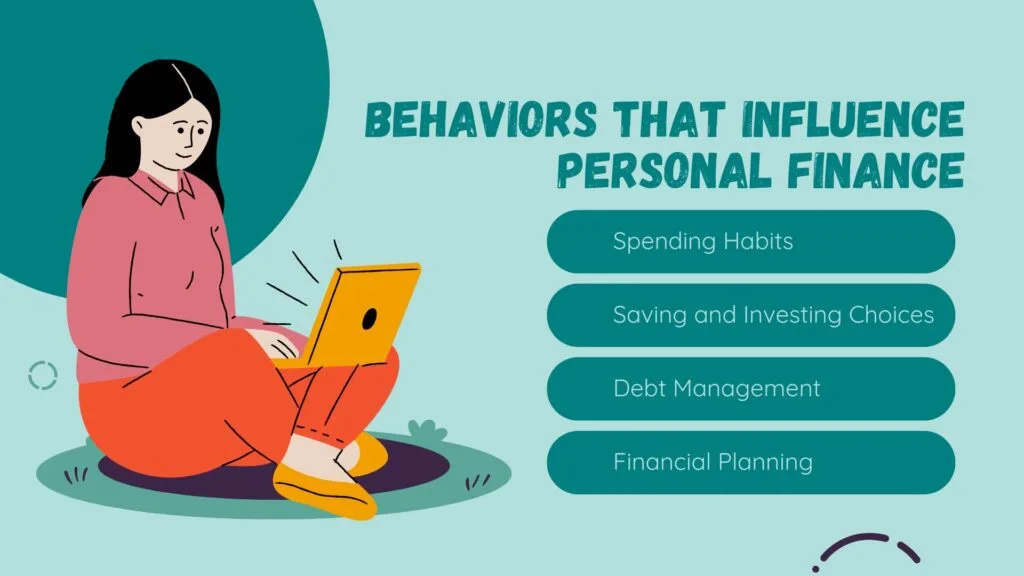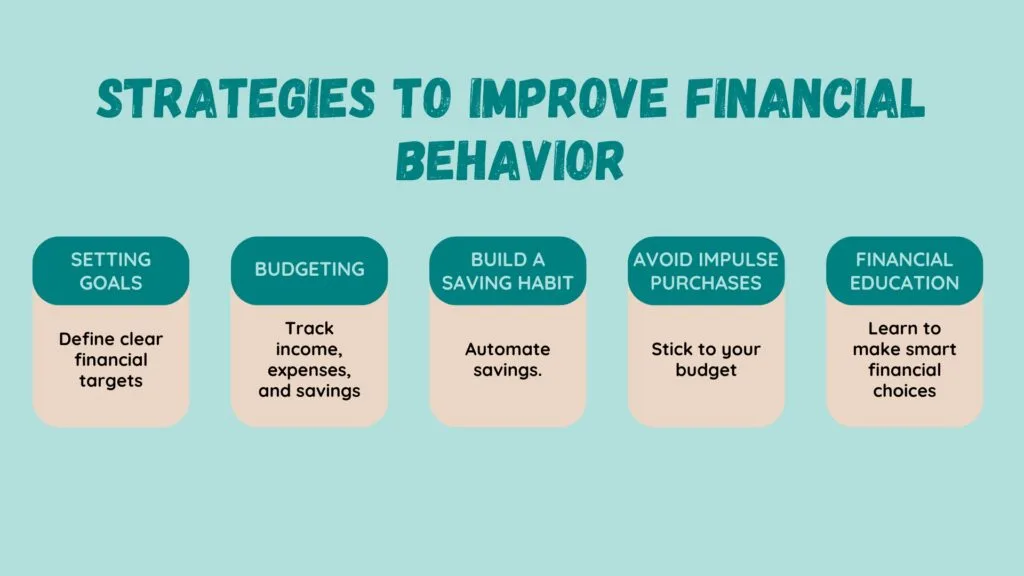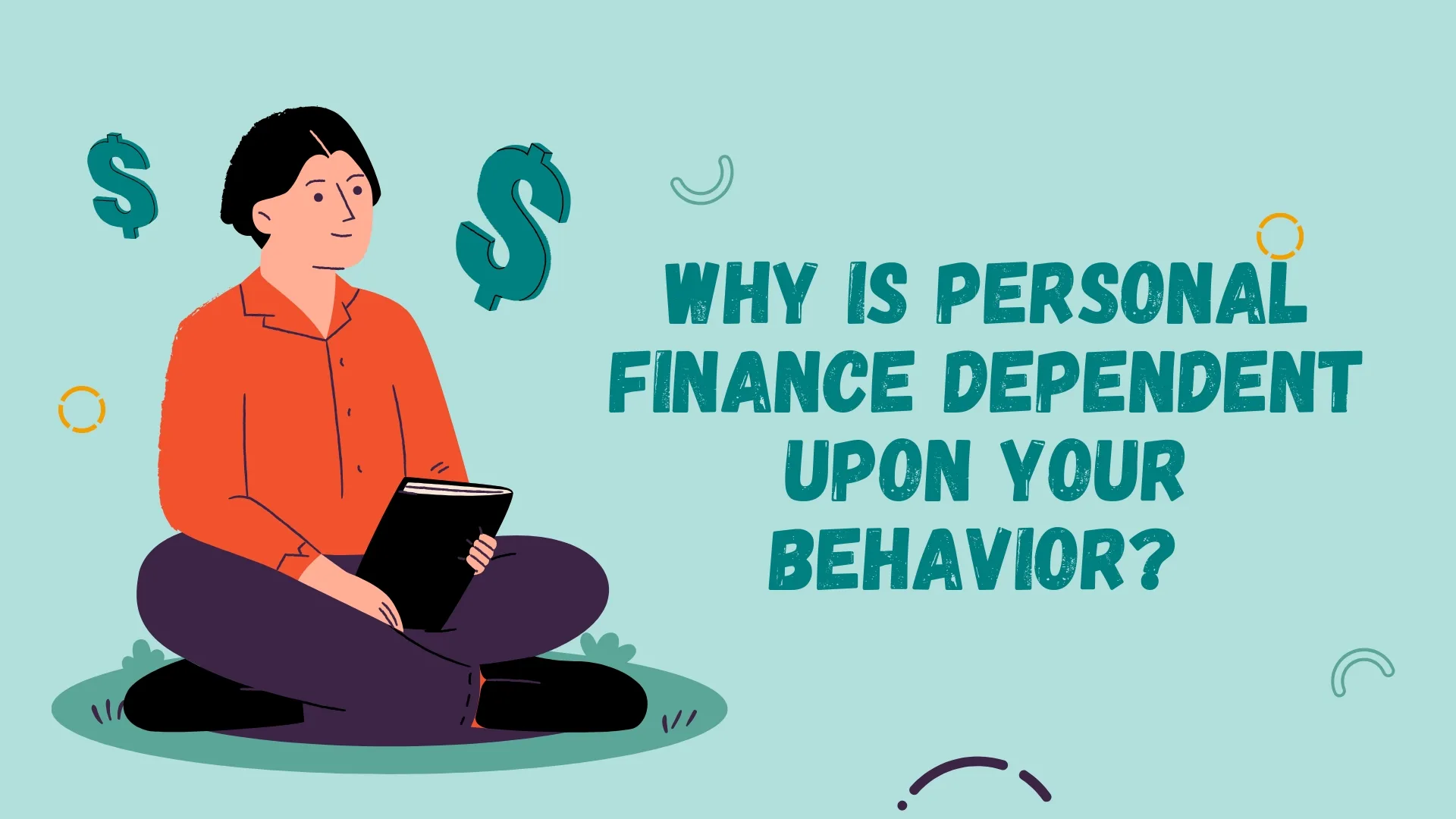Earning, spending, budgeting, saving, and investing are all part of personal finance, but the one thing that’s above all of them is how you control and handle yourself in all these.
You can create a personal finance flowchart, budget in the most amazing way possible, and even plan to invest properly, but all of it nullifies if you fail to stick to the plan and give in to your impulses. And that’s what we are here to discuss: the habits that shape your financial future.
READ MORE 5-Step Personal Finance Flowchart for Beginners
Understanding Personal Finance and Behavior

Personal finance is an idea that helps us improve our financial health by devising plans and habits to grow. The concept of personal finance includes budgeting, saving, investing, understanding your spending, and then looking for ways you can cut costs from your excessive spending to create more wealth, achieve certain goals, or save for retirement.
Factoring our behaviour into personal finance means understanding our spending habits. Knowing about how we spend, where we spend, and how we handle our savings and investments can help us enhance the process of growing financially. It shows you an image of yourself, whether you are a spoilt spender, a conservative spender, or an impulsive shopper, and whether that behaviour aligns with your goals and is how you wanna be seen.
The Link Between Behavior and Financial Success
Your actions when it comes to the concept of personal finances affect a lot on how fast and efficiently you can manage your finances. If you have a plan, your mind should be rigid when it comes to ensuring that you can reach the goal you have in mind in time, or else what’s the point? Everyone has dreams; every night, millions of people think, “I’ll save more and buy this,” but whenever their salary gets credited, boom, everything is gone within a month.
Many people in the world with the same income can have a vast difference in their finances just because of their financial habits. Some are conservative, focused on saving for their goals, and those are the people who end up getting what they want in the end. Others who end up spending per their impulses get what they want initially, but they regret it later and then start the process all over again. So, you decide which one you wanna be.
Behavioural finances also apply to people who invest their money in the stock market. Fear and Greed are the two greatest emotions that lead to financial failures for many people. The greed that the prices will go up, and I don’t want to miss out. And the fear of losing too much money.
READ MORE Top 10 Financial Literacy Books Recommended for Beginners
Behaviors That Influence Personal Finance

Spending Habits
One of the core behavioural aspects is the spending habit, whether you are a conservative spender who only spends as planned or are you someone who spends impulsively.
A person who can spend as per their plan is more likely to save more and will be able to allocate their savings as they wish. However, the habit of spending impulsively can lead to financial stress, debt, and overuse of credit cards and create a messy financial future. It’s a small impulse, but it can lead to a very stressful future.
Saving and Investing Choices
Savings and investing are the two core components that help you build long-term wealth or reach your financial goals, such as buying a car, house, phone, or anything else. But these components also heavily depend on your behaviour.
Do you stick to the plan and set a portion aside for these, or do you think to yourself, “I will save and invest next month; it’s getting out of budget this month, or I need the money this month”? Both thinking lead to different ends.
In the same way, while investing, you have to be patient; you cannot rush something that you wish to invest for a long time. Mutual funds, stocks, FD, and every investment option is a long game. And don’t let fear and greed get the best of you.
Debt Management
Debt management is the tricky yet crucial part. Debt is something that can build or ruin your credit good. If you are a responsible borrower who pays on time, it will build your credit score, but if not, it not only lowers your credit score but also blocks your option for getting loans for EMIs on products if you need it.
Moreover, if you already have some loans, paying them on time not only reduces your financial burden but also opens you up to a good credit score that you can use in future.
Financial Planning
A financial plan is your guide that is created by you to dictate to yourself what to do, how to spend, where to save, and where to invest. This guide makes sure that you move according to the very plan that you made to ensure that you reach your financial goal.
Strategies to Improve Financial Behavior

1. Setting Goals
A motivating aspect is the key to every plan. Everyone who has proven that saving is an effective method to reach your financial goal had something specific in their mind that drove them to achieve it.
The goal can be anything you want but don’t have right now. It can be a down payment for your new apartment, saving for a new car, or planning for retirement. Once you set up your goal, remember it every time you are about to spend that money elsewhere.
2. Budgeting
Budgeting is the process of creating a financial structure that shows your income source, your necessary spending, where you can save, how much you can invest, and how to reach your goal. This is your main guide, which shows you the way to a disciplined and financially peaceful life.
3. Build a Saving Habit
The main thing here is to make sure that you save your money as planned and not avoid it. Most people end up going over budget by saying I will save it next month; this is more important now. To avoid it, start automating the transfer to the savings account. This way, the income will be debited before you can spend on anything else.
4. Avoid Impulse Purchases
Once you are through the planning and budgeting phase, it’s time to implement it. And while doing so, you have to make sure that you stick to the budget and don’t give in to your impulses.
Whenever you feel the need to spend your money on something that isn’t in your budget, think about whether your goal is more important or the thing you want right now. Maybe you might fail at the start, but the feeling of regret that will haunt you will be the source that next time you choose something else over your goal, it will make sure you do not make the same mistake again.
5. Financial Education
Lastly, look into some educational content that teaches you about personal finances. Many people teach how to trade, where to invest, and where to save; these courses can help you make better decisions with more confidence.
READ MORE The Importance of Financial Literacy in Today’s World
Frequently Asked Questions (FAQs)
What does behavioural finance have to do with personal finance?
Behavioural finances explain how our thinking affects our spending and financial choices.
How does personal finance affect you?
Personal finance is the core of everything in this period; if you have weak financial conditions, it can cause you stress; if you have healthy finances, you will live more peacefully.
Is personal finance more about numbers or behaviour?
Personal finance is more about your habits. Good financial habits will lead to a better and more healthy financial future.
Final Statement
In conclusion, I’m sure we all agree that personal finance is more about habits than how much you are earning. A person with a lot of money and bad spending habits will run out of fuel, but a person with good spending habits is bound to stay financially fit in the future. It’s like today’s sacrifice will give them a better future, while for others, today’s impulse will cost them in future.
So make sure that you build up healthy financial habits, and whenever you are stuck in a tricky situation, ask yourself, “What is your priority, this immediate need, or your long-term goal?” and you will have a future in that answer.

